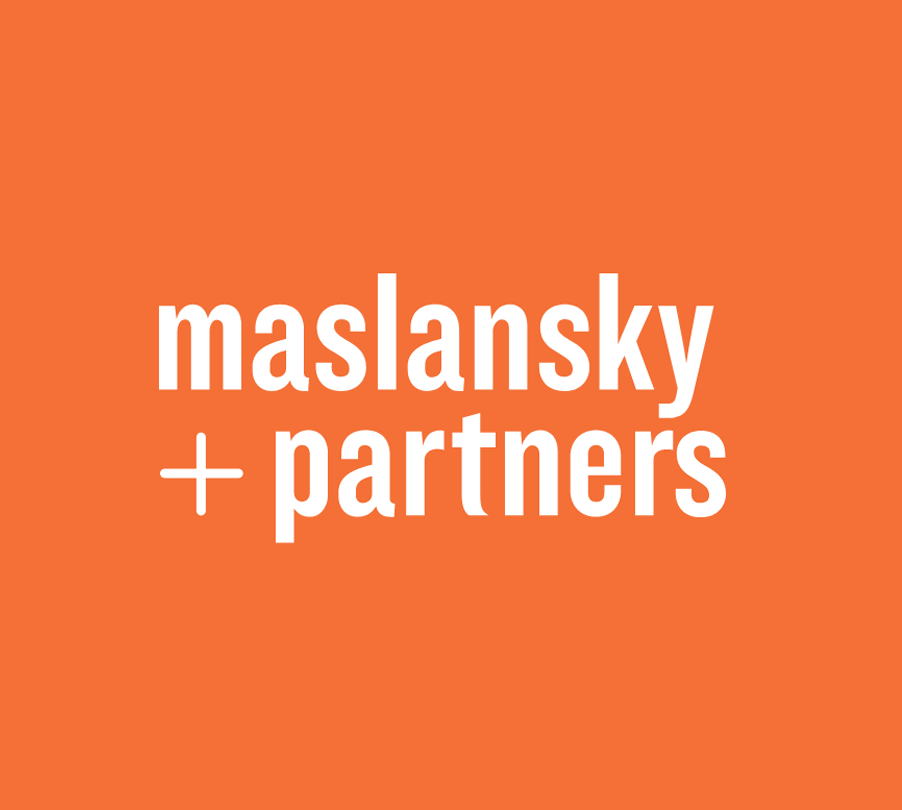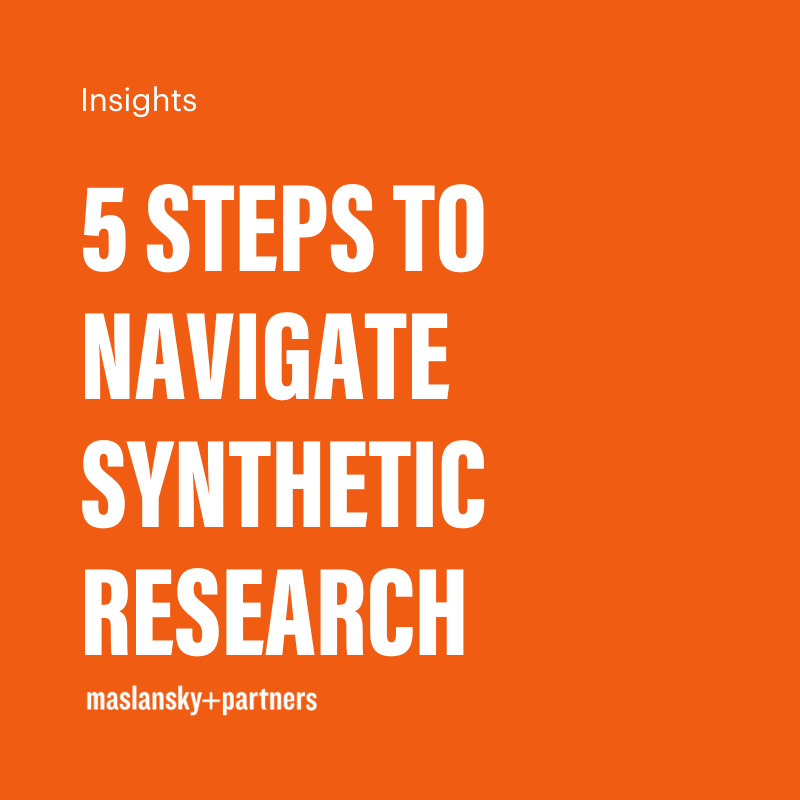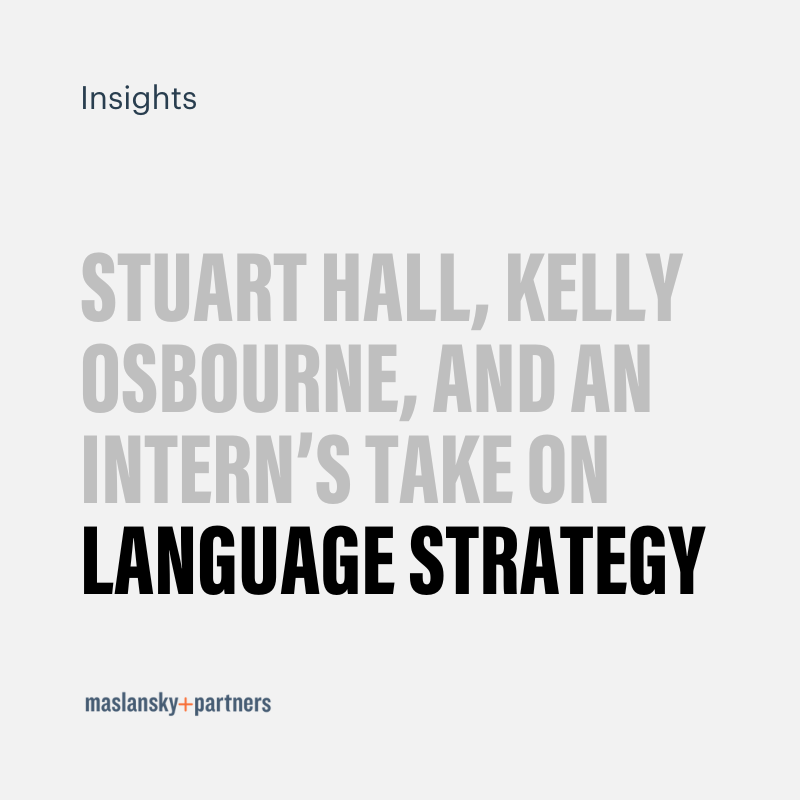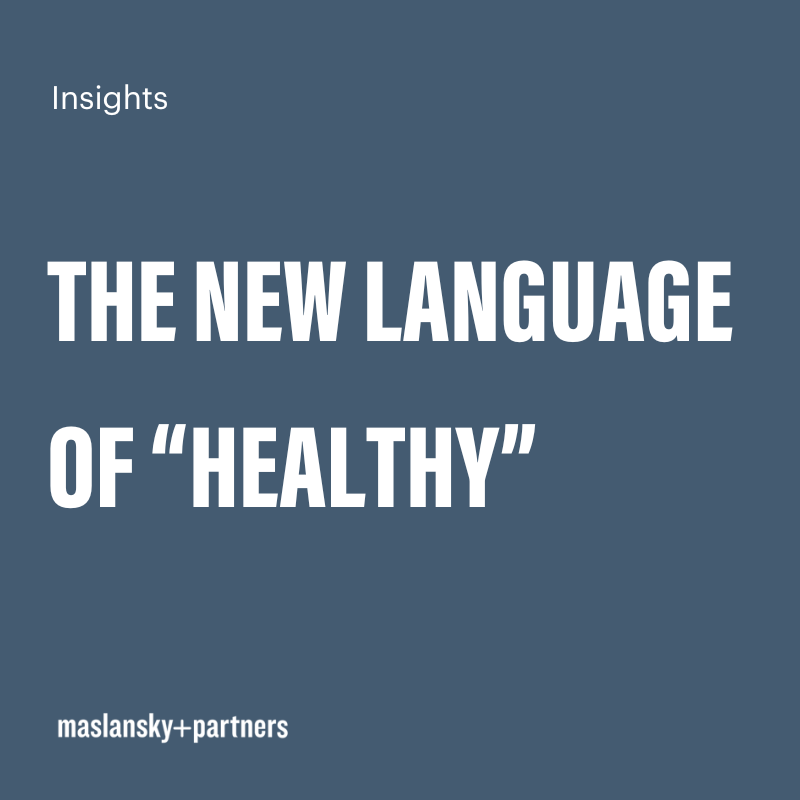

Three Seismic Shifts in Consumer Expectations—and How Your Business Can Survive the Age of Rage
There are moments in history when the ground beneath us moves and everyone feels it. Today, we’re living through one of those moments. The mood in America? Tense. The outlook? Distrustful. The stakes? Existential for every business and brand.
Right now, outrage is everywhere. It’s not just on the news or in your social feeds. It’s on the checkout line. At the customer service desk. In the way Americans talk about companies—yours included. People aren’t simply disappointed. They’re angry. And the target of that anger is no longer just politicians or Wall Street “fat cats.” It’s any company, in any industry, that fails to measure up to a new, higher standard: fairness.
At maslansky + partners, we’ve spent decades helping leaders understand the language of the moment. Our latest research, “The Fairness Factor,” reveals a seismic shift in what Americans expect from the companies they do business with. There’s never been a more urgent time to listen and adapt—because the old playbook is broken. Here’s what you need to know.
Seismic Shift #1: From Building Trust to Combating Distrust
Let’s be honest: trust isn’t just low—it’s in freefall. Our data shows that 61% of consumers believe most big companies purposely look for ways to take advantage of their customers. And 63% say they never, rarely, or only sometimes companies to do the right thing.
In the past, a scandal would erupt, the company would apologize, and after a few news cycles, trust could be rebuilt. Not anymore. Today, minor grievances accumulate. That surprise fee, the fine print, the impersonal service call—it all adds up. By the time a real crisis erupts, your audience is already primed to think the worst.
What does that mean for you? Every interaction is now a test. Customers walk into every engagement with skepticism, not optimism. Your challenge isn’t just to build trust. It’s to overcome deep, reflexive distrust. You can’t “spin” your way out. You have to meet people where they are: suspicious, frustrated, and ready to call you out.
Seismic Shift #2: From “You Don’t Care” to “It’s Unfair”
It used to be that companies were accused of not caring. That criticism, while serious, was relatively easy to answer—show that you care, and you could win people back. But the narrative has changed. “You don’t care” has become “You treat me unfairly”—and that hits much harder.
Fairness is primal. When people feel something is unfair, their reaction is visceral and, increasingly, public. Consider the outrage over hidden fees. 80% of Americans are angered by them—more than by any other issue, including performative activism. Viral TikToks and hashtags expose perceived injustices in real-time. Companies that fail to respond quickly and transparently are shamed into action.
Here’s the kicker: 71% of consumers believe companies never, rarely, or only sometimes treat customers fairly. That’s not just a customer service problem—it’s a brand survival problem.
Seismic Shift #3: From Goodness to Fairness
For years, the buzzword was “purpose.” Companies fell over themselves to prove they were doing good in the world. But today, being “good” isn’t enough—and in some cases, it makes things worse.
Why? Because “goodness” is subjective, polarized, and often feels like virtue-signaling. What people crave is fairness. The data is clear: when asked what values matter most, “fair” beats “good” by a mile. 74% of consumers prioritize fairness; only 45% prioritize “goodness.” It’s not that people don’t want companies to do good. But in an environment where half the country feels “values” are being forced down their throats, fairness is the one value you can’t afford to ignore.
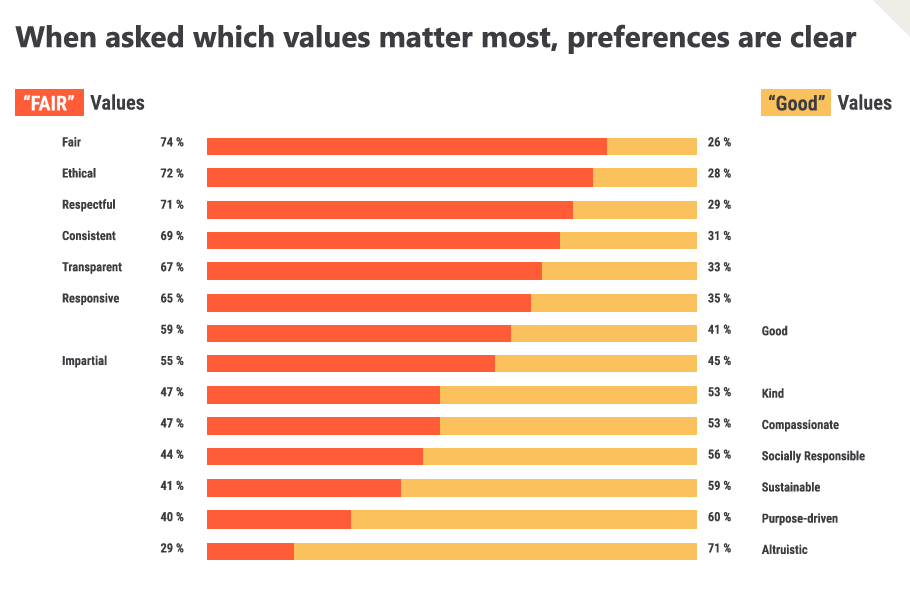
People want to know: Are you treating me the same as everyone else? Are you being transparent about your prices, your policies, your promises? Are you listening to my needs, or just pushing your agenda?
What surviving the seismic shifts looks like
These aren’t incremental changes. They’re tectonic. Your company’s future depends on whether you choose to adapt or double down on the old ways. Some survival tips:
At maslansky + partners, we help organizations turn these kinds of insights into action. We know the kind of language that builds trust in a world starved for fairness—and we can help you find and use it.
Ready to survive the Age of Rage?
Your company’s reputation—and maybe even its survival—depends on whether you see the world as it is, not as you wish it were. Download “The Fairness Factor” report today to learn more: to see the data, stories, and strategies shaping the new era of trust. We would also be happy to offer you a free presentation to share what we learned. Contact us if you’re interested. The age of rage isn’t going away—but with the right strategy, your company can not only survive, but lead.
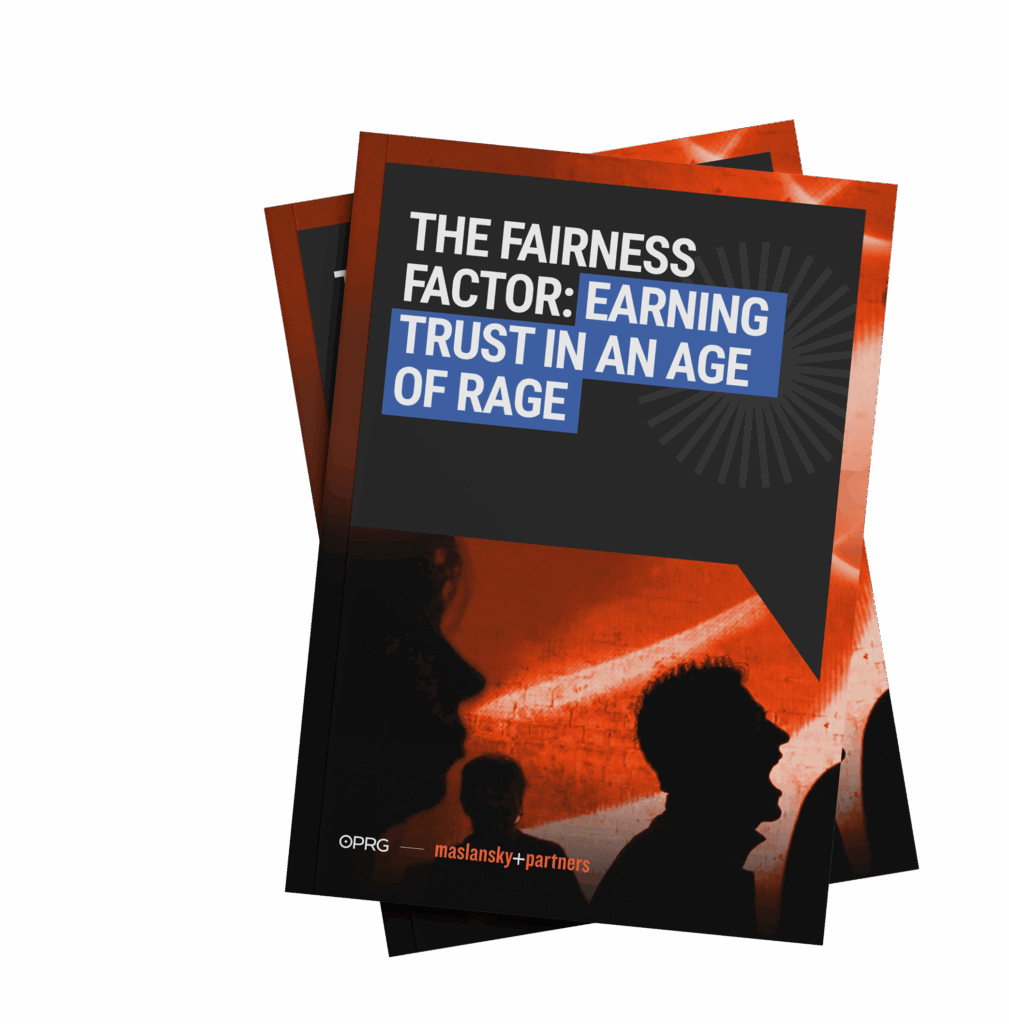
If you’re responsible for shaping messages, building trust, or protecting your brand, you need a new playbook. Download our “Fairness Factor” guide for critical insights on how to connect with your audiences in this volatile environment… how to treat customers fairly… and what language and strategies will resonate most effectively.



